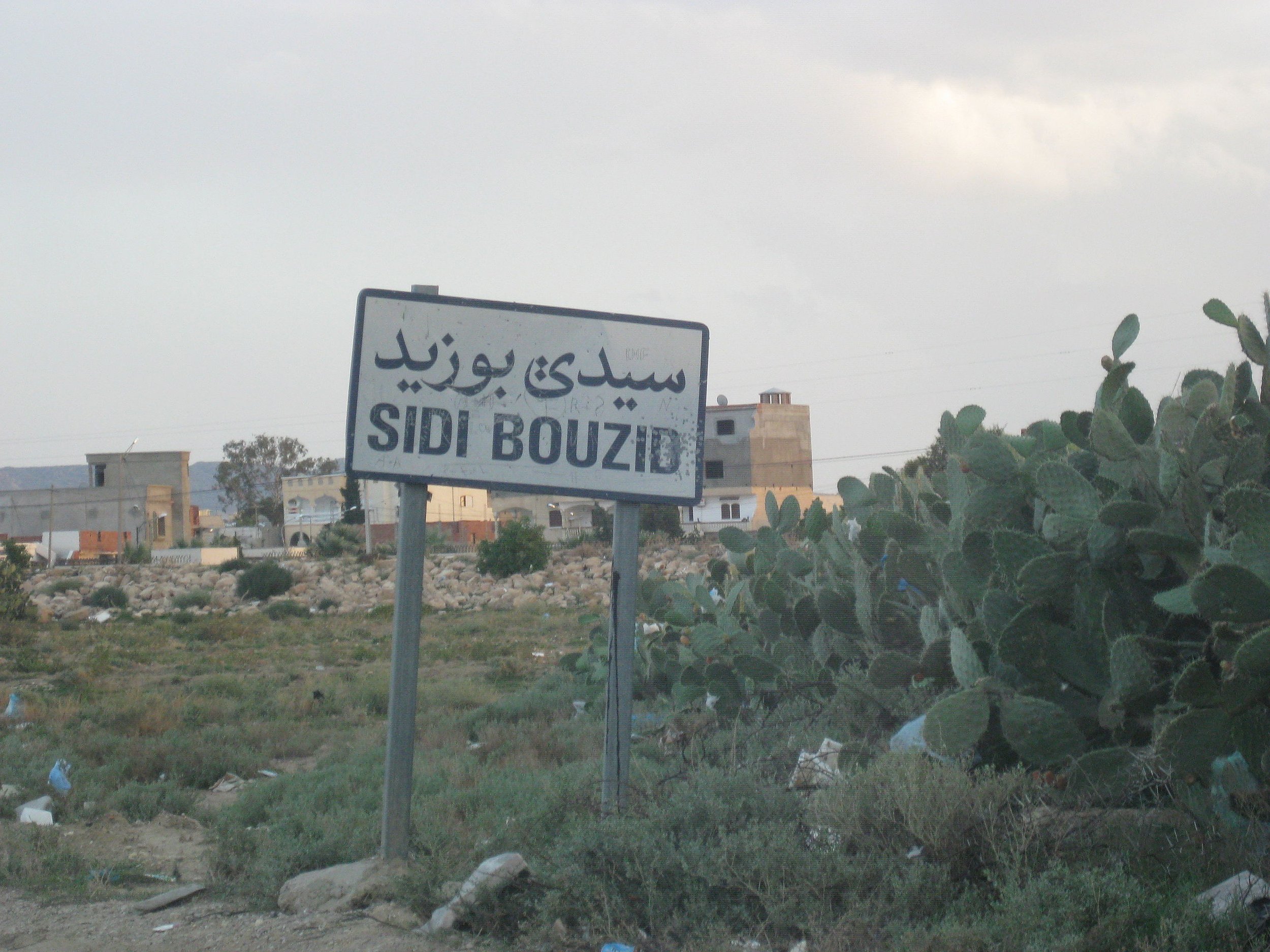
A Sidi Under Stress: Sidi Bouzid City Council, 2011
Once just a typical Tunisian city, Sidi Bouzid was suddenly catapulted to international prominence with the onset of the Tunisian Revolution in 2010. Long-standing issues—including unemployment, government corruption, and limits on political freedoms and speech—combined with the death of local vendor Mohmed Bouazizi to create the perfect storm for a tense clash between the police, government, and Tunisian protesters. Thousands of young Tunisians went to the streets to protest what they perceived as decades of inequitable governance and inadequate standards of living. But the increasing influence of social media platforms like Facebook allowed protests in this once-quiet city to reach an unprecedented international audience, and ultimately spur dozens of other similar movements throughout cities in the Middle East and North Africa. Collectively, this chain reaction came to be known as the Arab Spring.
A year later, in the aftermath of the initial Arab Spring Tunisian protests, Sidi Bouzid must decide how to proceed and change its governance to respond to citizen needs. Officials like President Zine El Abidine Ben Ali as well as multiple city council members have been ousted from power, leading to political transition and restructuring this committee must address. The significant international attention now on Sidi Bouzid poses an additional challenge, as the city must decide how to respond, reframe its identity, collaborate internationally, and ensure public safety as well as guarantee political rights often denied like free speech. Rebuilding also entails combating economic inequality, unemployment for young Tunisians, and the urban-rural economic divide within the city. Political polarization, bribery, and local level corruption also confront Sidi Bouzid as it works to redefine itself in a post-Arab-Spring world. Will Sidi Bouzid emerge a stronger city than ever before, or will it further fragment itself? The answer is up to you, delegates!
Co-Chair:
Anshuraj Pal
Anshuraj Pal is a member of Georgetown’s College of Arts and Sciences Class of 2027, studying Economics and Government. He calls the great city of Mumbai, India his home. This is his second time staffing NCSC, and his first time chairing at NCSC! In his free time, you might catch Anshuraj watching various sports, ranging from soccer to Formula 1 to basketball (He supports FC Barcelona and his local club, MCFC in soccer, Ferrari, and the Warriors). If he is not watching sports, he has his AirPods plugged in, probably listening to either Lana Del Rey, Radiohead, Frank Ocean or Fleetwood Mac, singing off-key while trying to do his assignments. On campus, Anshu, as he likes to be called, is involved with the Georgetown University College Democrats, GU Politics, and the Georgetown Coalition for Workers Rights. Anshu is incredibly excited to be one of your Chairs, and cannot wait to meet everybody at NCSC LII!
Crisis Manager:
John Schwendinger
John Schwendinger is a member of Georgetown’s School of Foreign Service Class of 2026, studying Regional and Comparative Studies with minors in German and Mathematics. If you ever hear him say the word “bag” or ask him about the Vikings, you will realize that he is originally from the lovely Chanhassen, Minnesota (home of Prince!). This is his third year on the staff of NCSC, so he knows the scooter route from the Georgetown campus to the Washington Hilton by heart. Outside of Model UN, you can often find John browsing Google Flights, practicing the digits of pi, editing articles for the Georgetown Journal of International Affairs, or pretending to do schoolwork at his favorite seat on the top floor of Lauinger Library. In his free time, he enjoys making useless spreadsheets, playing the same three video games he has for the past decade, and going on mountain hikes he did not adequately prepare for. John cannot wait to meet everyone he will experience NCSC LII with!
USG: Caroline Dupas
This committee is in the Councils & Boards Organ, and your Under-Secretary General is Caroline Dupas. Committees in this organ are Non-traditional crises with 25-30 delegates.
If you have any questions about your committee, please reach out to c.dupas@modelun.org.



